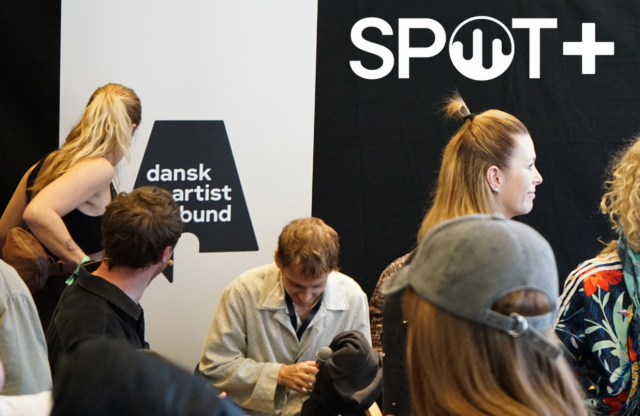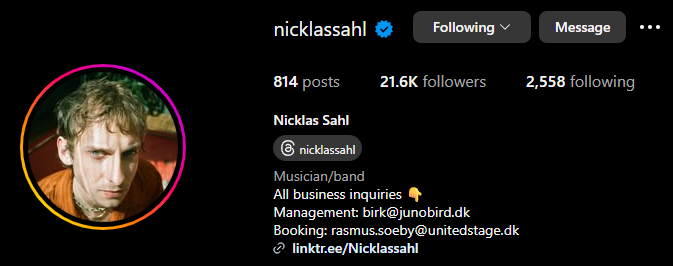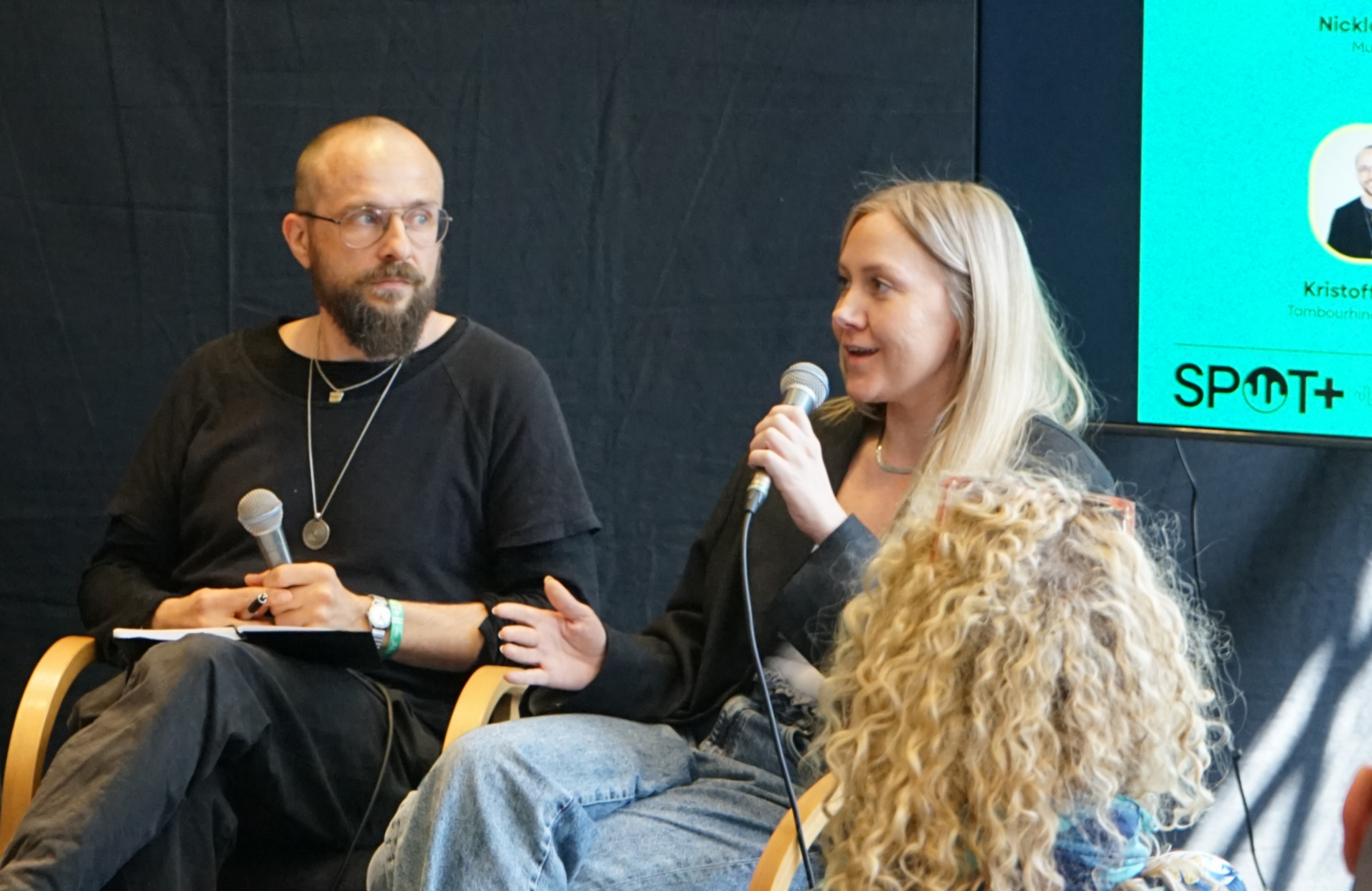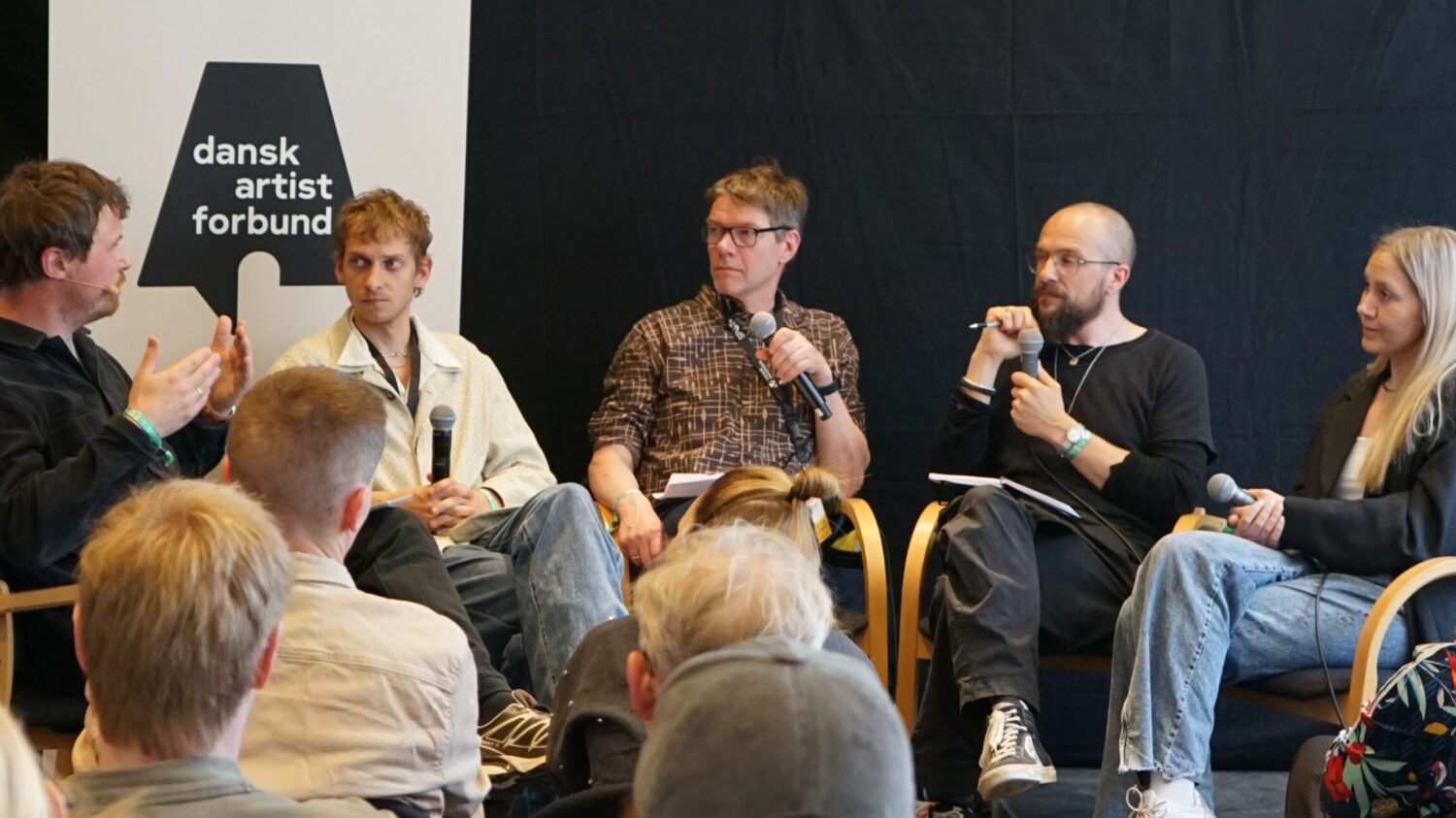Rewarding the long hours
on social media for the artist?
How do artists today organise a working life where social media is a given? And what does the demand for a presence on the digital stage mean? We had a conversation about this in the inner circle of the music industry at the Danish Artist Association's debate at this year's SPOT+ conference.

Social media is now an indispensable part of everyday life for music artists, as a survey of members of the Danish Artist Association clearly shows: social media is where audiences discover new music, where you announce your new album or concert dates, and for some, even where you have direct and personal contact with your fans. But is there a cost to this level of self-exposure and to the extent necessary to get through the algorithms?
"When I start promoting, I have to switch hemispheres. It feels like a completely different discipline and it can be very challenging," said panellist and artist Niklas Sahl during the debate.
"It's a different hemisphere"
Singer and songwriter Nicklas Sahl has been active on social media since his debut in 2018 - and with close to 100 million streams behind him, he's now one of Denmark's most listened to artists. But that doesn't mean it's easy to balance the role of artist with the role of content creator, or that he's done running fast to keep his fans' attention.

He described to the crowd how social platforms can feel both necessary and contradictory.
"The world's best music promotion tool has forced me to become a multimedia artist. If I'm to achieve my dreams, I have to compete for attention on social media. But how do I compete with dog videos and sensationalist journalism while maintaining my artistic integrity?"
Industry: "A conversation we need to have earlier"
Several panellists emphasised that social media isn't necessarily the only way to reach audiences - but there was a consensus that the dominance of these platforms makes it difficult to opt out completely.
At Universal Music, creative manager Charlotte Madsen is actively working to find sustainable solutions for artists' working lives, she says:
"We try to create a team feeling and put the work with social media into a framework that resembles a normal working day for the artist. We move it from a recreational activity to a professional space where the artist is at work."

Even though the artist's social media work is not paid via a label in the traditional sense, Charlotte Madsen points to what she called an important factor during the debate: time well spent, and perhaps even paid indirectly, because social media delivers quick results in terms of conversions to streams and ticket sales.
Social media platforms are the new scene
Søren Pold, Associate Professor of Digital Aesthetics at Aarhus University, confirms that social media and streaming have become an important term.
He concludes that social media is a new technology and a new stage that is unavoidable for artists today, and therefore they must find their own way to be present on the new stage.
"It's important to remember that platforms edit and limit who we reach. You rarely reach the people you're actually trying to reach."
At the same time, he encourages both artists and audiences to have realistic expectations of what they can get out of the platforms:
"We are all tired of Meta. Both as users and content providers. We know that they're the ones making the money. And artists are turned into a kind of precariat in a system where only Mark Zuckerberg really gets paid," said the researcher.
Kristoffer Rom, co-founder of the leading record label Tambourhinoceros and chairman of Danish Independent Record Companies, called for the same alignment of expectations between artist and label.
"I see many debuting artists surprised by the amount of time it takes to market their music and brand. It's important to have the conversation early on: What do we expect from each other and how do we work with fan communication. It's about artist and label having the same vision," he says.

A working condition that requires rethinking
The debate at SPOT+ confirmed that social media has become a basic condition for many professional artists today, and that the digital pressures and technological possibilities occupy artists, labels, and researchers alike. For better or worse. The Danish Artist Association will bring facts and cases to the table in the coming months in a series of articles on the subject.
Here we shed light on how artists work with social media on a day-to-day basis and how the digital demands affect their work life, career and mental balance.
Text and photo: Trade journalist, Mathias Krogsøe

